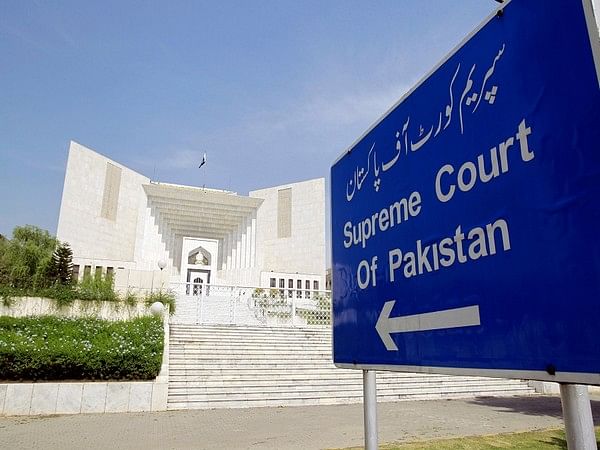Islamabad [Pakistan], September 21 (ANI): Pakistan’s Supreme Court has dealt a significant blow to the federal government by ruling that national and provincial assemblies cannot enact laws – whether prospective or retrospective – that violate fundamental rights enshrined in the country’s Constitution, according to a report by Dawn.
Justice Syed Mansoor Ali Shah, heading a three-judge bench, made the observations while hearing appeals against the 2019 amendments to Section 65B of the Income Tax Ordinance (ITO), 2001.
In the judgement, Justice Shah wrote that Article 8 of the Constitution restricted the legislative powers of parliament and provincial assemblies by stopping them from making any law that affects the constitutional rights of people. Neither parliament nor the provincial assemblies could exercise their legislative powers in a manner prohibited by this article, Dawn reported.
Notably, until the 2019 budget, the ITO provision granted a tax credit of 10 per cent to industries that bought and installed new machinery between the period from July 1, 2010, to June 20, 2021. However, the amendments in the Finance Act of 2019 changed the ending year from 2021 to 2019 and also decreased the rate of tax credit from 10 per cent to 5 per cent.
Several firms had challenged the amendment in the Sindh High Court, which struck down the provision reducing the tax credit to 5 per cent in February 2023. The decision was challenged by the Inland Revenue Commissioner in the Supreme Court.
The judge emphasised that the decrease in the tax credit rate was a “violation of the prohibition against discrimination.” He also noted that the tax credit rate reduction was also against Article 25 which stated that all citizens are “equal before law and are entitled to equal protection of law.” (ANI)
This report is auto-generated from ANI news service. ThePrint holds no responsibility for its content.



